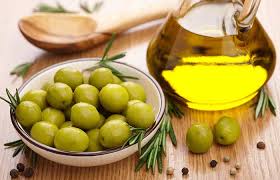Olive fruit water is a waste product derived from producing olive oil. Olives contain polyphenols which have antioxidant properties, and a commercially available olive fruit water product, called OliPhenolia, contains a number of phenolic compounds and is particularly rich in hydroxytyrosol.
The first study into its potential benefits for people who exercise involved 29 recreationally active participants who consumed either OliPhenolia or a placebo, matched for taste and appearance, over 16 consecutive days, and it found positive effects on several key markers of running performance.
OliPhenolia consumption improved respiratory parameters at the onset of exercise as well as oxygen consumption and running economy at lower levels of intensity (lactate threshold 1).
Respiratory parameters at a higher intensity (lactate threshold 2) were largely unaffected, but perceived exertion — how hard participants thought their body was working — was improved, as was acute recovery following incremental exercise.
Lead author Dr. Justin Roberts, Associate Professor in Health & Exercise Nutrition at Anglia Ruskin University (ARU), said:
“For a long time I’ve been interested in the exercise benefits of polyphenols, such as those derived from cherries and beetroot. To gain similar benefits from olives you would have to consume large quantities daily, which isn’t realistic, so we were keen to test this concentrated olive fruit water.
“Like olive oil it contains hydroxytyrosol, but this olive fruit water is a sustainable by-product. It’s typically thrown away during the production of olive oil, and we found a company in Italy — Fattoria La Vialla, a biodynamic farm in Tuscany — who decided to turn this wastewater into a dietary supplement.
“Ours is the first study to investigate the use of this olive fruit water in an exercise setting and we found that 16 days of supplementation could have a positive influence on aerobic exercise, most notably at submaximal levels.
“We found that reduced oxygen cost and improved running economy, as well as improvements in acute recovery, indicate it could potentially benefit those who are undertaking regular aerobic exercise training.
“We now intend to carry out further research at Anglia Ruskin University to corroborate these findings. We are also looking to investigate whether this product can be used for marathon training and recovery, as well as test its effectiveness in suppressing inflammation associated with exercise.”
Dr. Roberts carried out the work with researchers Jorge Pinto and Joe Lillis. The research was funded by Fattoria La Vialla, Arezzo, Italy. The funders had no role in the design of this peer-reviewed study; in the collection, analysis or interpretation of data; in the writing of the manuscript; or in the decision to publish the results. The full open-access study has been published in the journal Nutrients.




